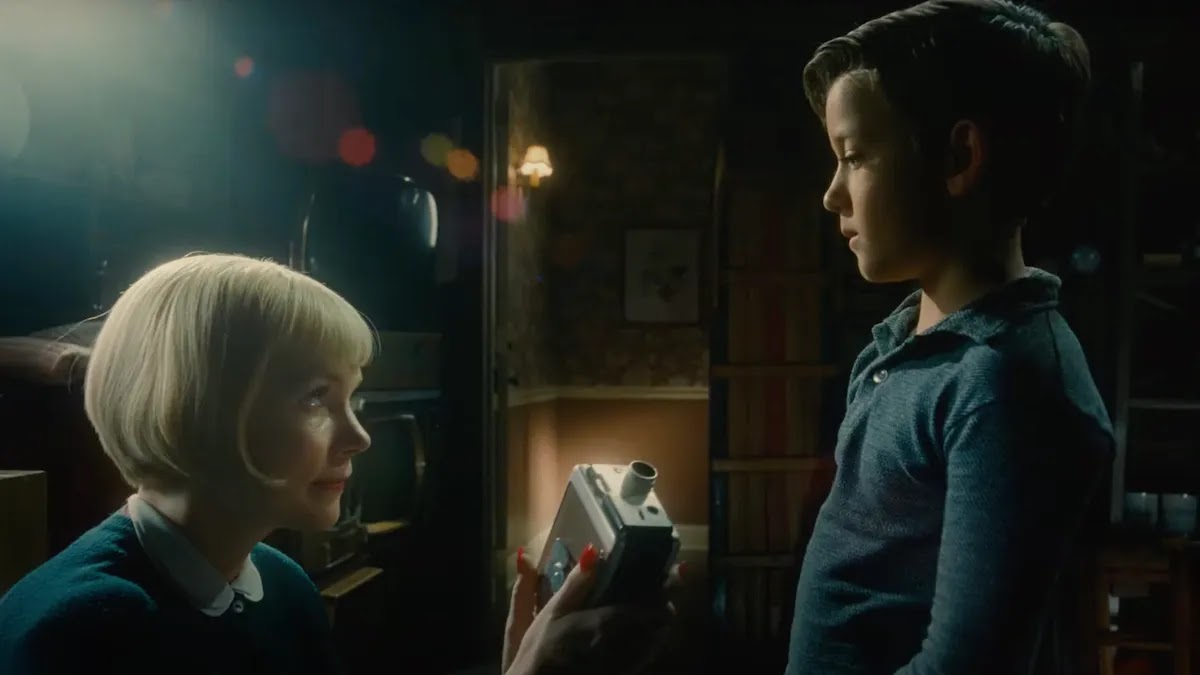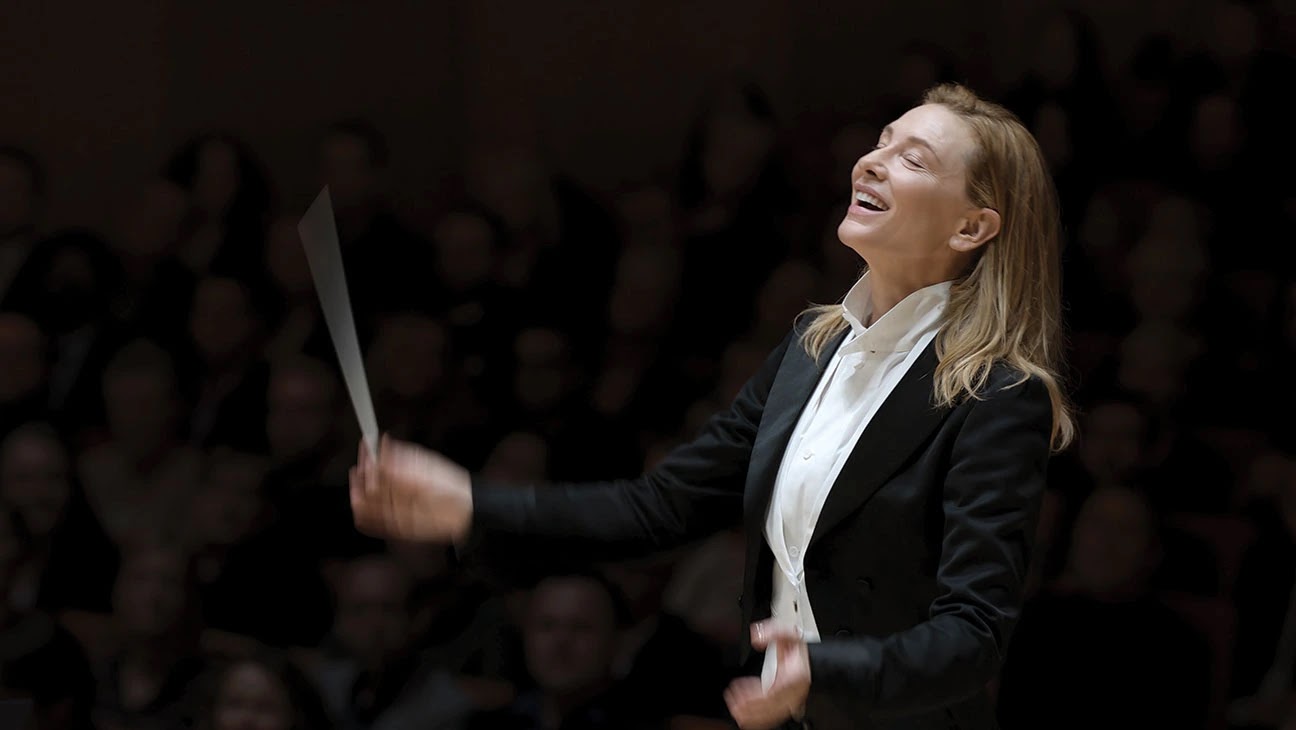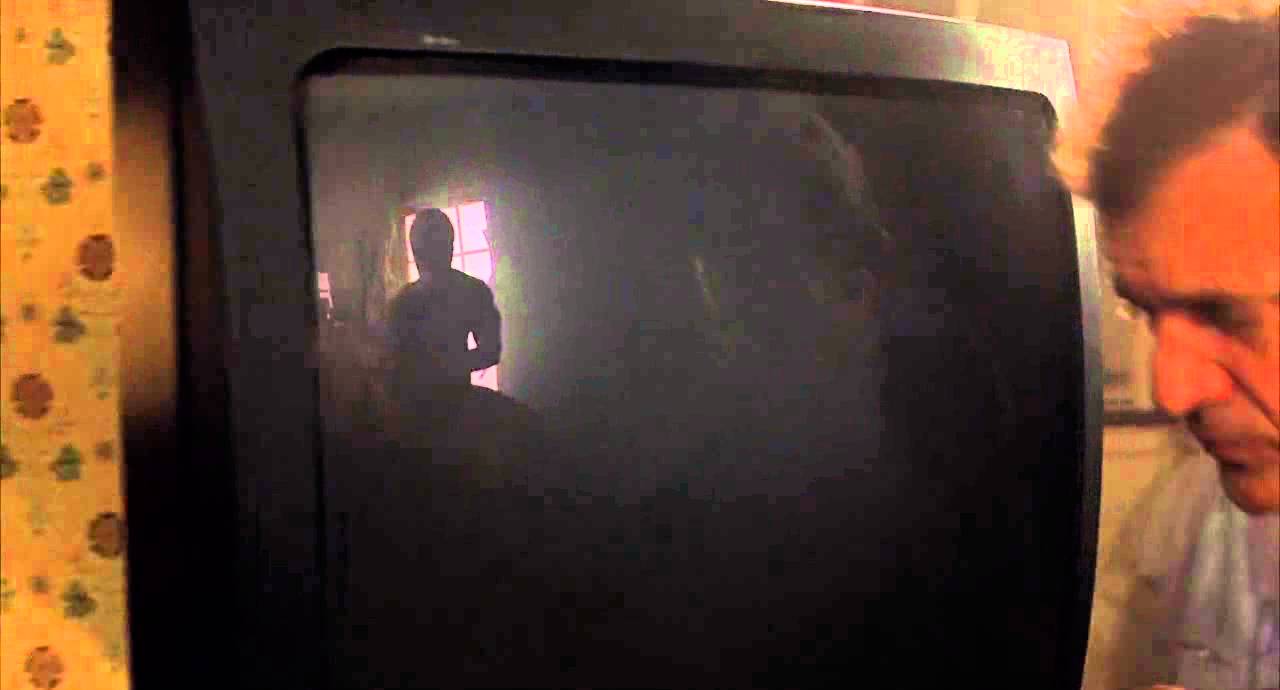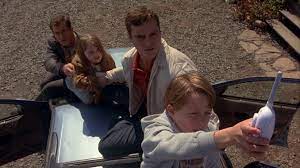At the film's beginning one of British agent Alec Leamas' (Richard Burton) operatives is killed at Checkpoint Charlie in Berlin. Leamas is called back to London by agency chief Control (Cyril Cusack), where he is supposedly dismissed from the service. Leamas gets a job at a library where he meets Nan Perry (Claire Bloom), with whom he begins a relationship. One day Leamas drunkenly assaults a grocer (Bernard Lee, funnily enough the original James Bond "M") and briefly goes to jail. When he is released, he's approached as a possible defector by East Germany.
It's revealed this is all been set up by control so Leamas can implicate an East German agent- Mundt (Peter van Eyck)- as a British spy and have him killed. That we do not learn of this mission until after spending time establishing Leamas' relationship with Nan and seeing him approached to be a defector, makes the revelation more satisfying. The audience get to say "Oh, I get it," which is always very rewarding. It also establishes that the story requires patience. And by film's end I think everything pays off brilliantly. Paul Dehn and Guy Trosper's screenplay also has these events play out in a naturalistic way, giving you the feeling of a real spy story unfolding before you.
Leamas is no Bond. He's not a fun character to be around and doesn't seem to being having a lot of fun himself, unless he's being sardonic. His relationship with Nan doesn't have the sexual excitement of the Bond films- it feels more paternal Burton was never the warmest of actors, which makes him perfect for the role of a standoffish, burnt-out spy. In a performance that's as bitter as a cyanide pill, Burton makes you feel that weariness from years of service in your own bones, playing a part that's not really much of a part. It feels there's a very thin line between the role Leamas is playing and the man he is. As Michael Sragrow says in his essay for the Criterion Collection release of the film, pertaining to when Leamas is first sent on his mission,
"...those who haven't read the book must wonder whether Leamas becomes a drunken has-been or is merely playing one...it's hard to know when Leamas is putting everyone, or where the put-on ends and the real Leamas begins."
When Leamas tells Fielder, Mundt's second-in-command, and who's suspicious of Mundt, that becoming a spy was just about the money, I don't think Leamas is lying. It's easy to pretend to be a defector when you are genuinely fed up with the job. Fielder stands in contrast to him, he believes in the communist cause, and feels Leamas should believe in something. Leamas says he holds the right to be ignorant, the "Western way of life," as he calls it.
This isn't the first time in the film Leamas is confronted with a person whose passion clashes with his dispassion. Nan is also a communist, which Leamas takes as Nan being naive. He says that when it comes to things like communism and capitalism, it's the "innocents who get slaughtered. This calls forward to the conversation with Fielder where Fielder states he would kill innocent people to achieve his goals- but that if innocent people are to die, if should be for something.Maybe Leamas did believe in something once- perhaps all cynics are reformed optimists- but even if he did, it wouldn't stop the events of the story. Leamas is ultimately a pawn in a larger game, one in which he unknowingly dooms both Nan and Fielder.
Fielder puts Mundt on trial for being a double agent, but when Nan is brought to the tribunal and admits to having received payments by British Intelligence, Leamas had to admit he's a British agent. Fielder is arrested and will probably be killed. Mundt frees Leamas and Nan, which leads to Leamas explaining what just happened. Mundt actually is a double agent and Leamas' mission was ultimately to discredit Fielder, with Nan being part of that plot. And it all comes back to philosophy, with Leamas answering Nan's question of who this operation helped, stating
"What the hell do you think spies are? Moral philosophers measuring everything they do against the word of God or Karl Marx? They're not! They're just a bunch of seedy, squalid bastards like me: little men, drunkards, queers, henpecked husbands, civil servants playing cowboys and Indians to brighten their rotten little lives. Do you think they sit like monks in a cell, balancing right against wrong? Yesterday I would have killed Mundt because I thought him evil and an enemy. But not today. Today he is evil and my friend. London needs him. They need him so that the great, moronic masses you admire so much can sleep soundly in their flea-bitten beds again. They need him for the safety of ordinary, crummy people like you and me."
Leamas could have believed in philosophy he wanted throughout this story, but he still would've come to the same conclusion he comes here. All that's changed for Leamas is, as he says, Mundt is now his "friend."
Leamas is, by design, a difficult character to work with because he's blase about things and not necessary the most exciting guy to be around. He's not traditionally and his lack of belief system (which maybe in itself is a belief system) doesn't really change over the course of the film but is rather confirmed. When Nan gets killed by one of Mundt's henchmen while she and Leamas are attempting to climb the Berlin Wall, it calls back to what Leamas said about innocents get slaughtered.
If Nan is the innocent victim than Fielder is arguably the closest thing the story has to a hero (though there are no true heroes in this world). He wants to expose a traitor in the Communist party, and Werner makes Fielder surprisingly likable and charming. And the fact that he's right about Mundt means he has to be killed. "London made us kill him, Kill the Jew," Leamas tells Nan. Mundt is a former Hitler Youth, which is a big reason Fielder doesn't like Mundt. This makes Fielder a more sympathetic character than Leamas, whose final statement about him, as complimentary as Leamas gets, is he was a "clever Jew."
Now, I want to talk a little about the film's director, Martin Ritt. Ritt, like Fielder, was Jewish, born in Manhattan, and who started out as an actor in the theatre, where he eventually met Elia Kazan. Ritt worked as playwright and director of plays before turning to television. He became a victim of the Hollywood blacklist in 1952, after which he returned to the theatre. When things died down, he made his film debut with Edge of the City (1957), starring Sidney Poiter and John Cassavetes. It based on a true story about corruption on the docks, similar to On the Waterfront. (1954). It was Ritt's experiences playing football in North Carolina, seeing the contrast between the deep south and his Manhattan upbringing that made him to do socially conscious films. He would direct Poitier again, alongside Paul Newman, in Paris Blues (1961) Newman and Ritt would collaborate again on Hud (1963), The Outrage (1964, a remake of Akira Kurosawa's Rashomon) and Hombre (1967). Ritt received a Best Director nomination for Hud.
He won the BAFTA for Best British Film for Spy but would not receive an Oscar nomination for his elegant direction. Neither did Oswald Morris for his beautifully stark black and white cinematography, which provides much of the film's aptly chilly atmosphere. The film would only receive two Oscar nominations, Burton for Best Actor, and Best Art Direction- Black and White (Hal Periera, Tambi Larsen, Ted Marshall, Josie McAvin). Burton is my pick for Best Actor (though I haven't seen Lee Marvin's winning performance for Cat Ballou). Werner got a Golden Gloe nomination for Best Supporting Actor and I feel he should've been nominated for the Oscar (he actually was up against Burton in Best Actor for Ship of Fools). The Sound of Music was the Best Picture winner that year. That's no doubt a beloved and remembered film, and it's not a surprise the stark reality of Spy wasn't embraced by the academy. However, Spy has only grown in esteem and still feels like an uncommonly austere portrait of a spy's life.




















